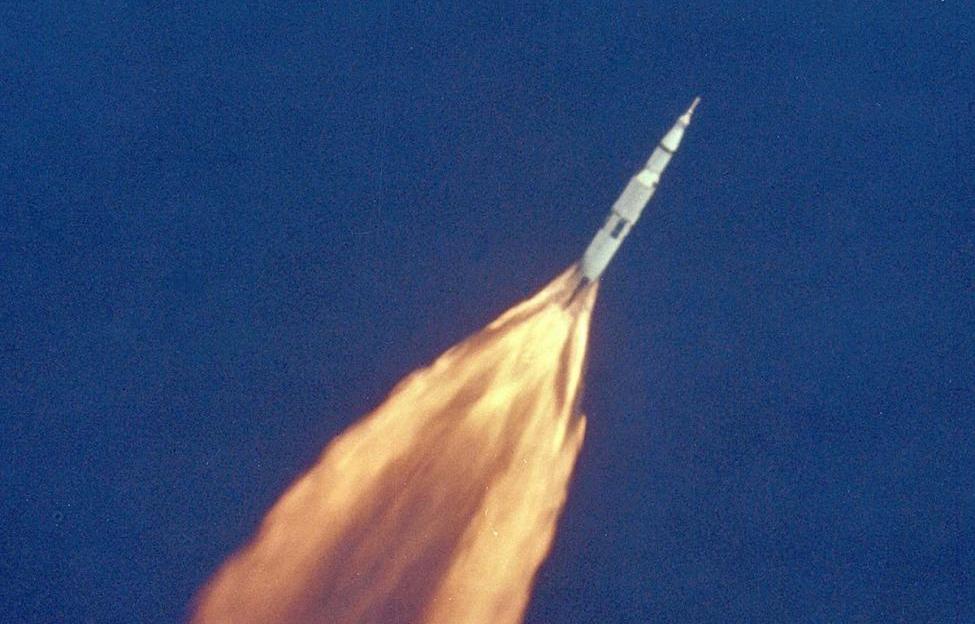John Tolley, July 24, 2019
50 years ago, when Neil Armstrong, Buzz Aldrin and Michael Collins set out for the moon in their Apollo command module, they did so atop a Saturn V rocket loaded to the hilt with 947,459 gallons of liquid oxygen, liquid hydrogen and kerosene. Providing 7.5 million pounds of thrust, they burned in one second more fuel than Charles Lindbergh did in his entire transatlantic flight.
As humans continue to push the bounds of both space and terrestrial flight, the study of the energetic materials needed to fuel exploration and research remains paramount.
Recently it was announced that a team co-led by University of Iowa mechanical engineering professor H.S. Udaykumar secured a five-year, $7.5 million grant from the US Department of Defense to further research into the behavior and properties of various high-performance propellants and fuels.
Energetic materials are those substances that contain a high amount of chemical energy that can be released as kinetic energy to provide thrust. These can include the aforementioned rocket fuel mixtures, pyrotechnic composites, explosives and conventional fuels, such as gasoline or diesel.
The DOD-funded project, part of a larger block of grants providing funding to 24 teams across the nation, will focus on the nature of energetic materials under extreme conditions utilizing advanced computer modeling.
Speaking with the Iowa Now news service, Udaykumar outlined the crucial multidisciplinary nature of the work.
?This collaborative project brings together experts in chemistry, materials science, engineering mechanics, and machine learning to tackle the complex problem of designing fuels for very high-speed applications,? says Udaykumar. ?Flights at high speeds also present other design challenges. Safety is a huge concern due to extreme pressure, temperature, and stress. So, to design safe operating systems under those conditions, we must understand the science and be able to reliably model their performance. We need experts from chemistry, materials science, physics, and engineering to work together with their specialist knowledge and cutting-edge toolboxes.?
Helming the project with Udaykumar is University of Missouri professor of chemistry Tommy Sewell, who will provide precise compositional analysis of the study materials. They are joined by Stephen Baek, an assistant professor of industrial and systems engineering at Iowa, who will investigate material behavior from laboratory data using advanced machine learning.
Along with the University of Iowa?s Udaykumar and Baek, the team also includes Big Ten conference colleagues from the University of Illinois at Urbana-Champaign and Purdue University.
For more information on the full initiative, read the full DOD press release here.







